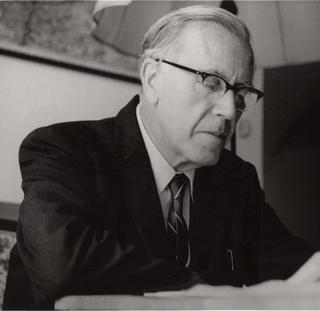A Quote by Dorotheus of Gaza
Even if we cannot endure much labor because we are weak let us be set on humbling ourselves.
Related Quotes
The question we must ask ourselves as a culture is whether we want to embrace the change that must come, or resist it. Are we so attached to the dietary fallacies with which we were raised, so afraid to counter the arbitrary laws of eating taught to us in childhood by our misinformed parents, that we cannot alter the course they set us on, even if it leads to our own ruin? Does the prospect of standing apart or encounttering ridicule scare us even from saving ourselves?
So many things beat upon us in a lifetime that simply enduring may seem almost beyond us… But the test a loving God has set before us is not to see if we can endure difficulty. It is to see if we can endure it well. We pass the test by showing that we remembered Him and the commandments He gave us. And to endure well is to keep those commandments whatever the opposition, whatever the temptation, and whatever the tumult around us.
We can stop picking on ourselves for picking on ourselvesWe can cherish ourselves and our lives. We can nuture ourselves and love ourselves. We can accept our wonderful selves, with all our faults, foibles, strong points, weak points, feelings, thoughts, and everything else. It's the best thing we've got going for us. It's who we are, and who we were meant to be. And it's not a mistake. We are the greatest thing that will ever happen to us. Believe it. It makes life much easier.
We don't seek the painful experiences that hew our identities, but we seek our identities in the wake of painful experiences. We cannot bear a pointless torment, but we can endure great pain if we believe that it's purposeful. Ease makes less of an impression on us than struggle. We could have been ourselves without our delights, but not without the misfortunes that drive our search for meaning. 'Therefore, I take pleasure in infirmities,' St. Paul wrote in Second Corinthians, 'for when I am weak, then I am strong.'
There are no limitations set by this electric universe upon any man's multiplication power. Each man sets his own limitations in accordance with his desires. He be a thin wire which gathers little energy and carries a weak current, or he may be a heavy one. That is true of all energy borrowed from the universe by all of us. It is there in unlimited quantities, but the gauge of the kind of wire each of us is set by ourselves.
God created us in joy and created us for joy, and in the long run not all the darkness there is in the world and in ourselves can separate us finally from that joy, because whatever else it means to say that God created us in His image, I think it means that even when we cannot believe in Him, even when we feel most spiritually bankrupt and deserted by Him, His mark is deep within us. We have God's joy in our blood.
Giving importance to what we think because we thought it, taking our own selves not only (to quote the Greek philosopher) as the measure of all things but as their norm or standard, we create in ourselves, if not an interpretation, at least a criticism of the universe, which we don't even know and therefore cannot criticize. The giddiest, most weak-minded of us then promote that criticism to an interpretation that's superimposed, like a hallucination; induced rather than deduced. It's a hallucination in the strict sense, being an illusion based on something only dimly seen.
Demons frighten us because we set ourselves up to be frightened. We are overly attached to our reputations and possessions. When we love and desire what we should be rejecting, we are in conflict with our true selves. That's when the negative energies catch us and use our weapons against us. Instead of taking up what we have to defend ourselves, we put our swords in the hands of our enemies and make them attack us.
The lesson, I suppose, is that none of us have much control over how we will be remembered. Every life is an amalgam, and it is impossible to know what moments, what foibles, what charms will come to define us once we're gone. All we can do is live our lives fully, be authentically ourselves and trust that the right things about us, the best and most fitting things, will echo in the memories of us that endure.
Nothing, not even the best and noblest, can go on as it now is. Nothing, not even what is lowest and most bestial, will not be raised again if it submits to death. It is sown a natural body, it is raised a spiritual body. Flesh and blood cannot come to the Mountains [heaven]. Not because they are too rank, but because they are too weak. What is a Lizard compared with a stallion? Lust is a poor, weak, whimpering whispering thing compared with that richness and energy of desire which will arise when lust has been killed.
We are all substantially flawed, wounded, angry, hurt, here on Earth. But this human condition, so painful to us, and in someways shameful- because we feel we are weak when the reality of ourselves is exposed- is made much more bearable when it is shared, face to face, in words that have expressive human eyes behind them.
































